Why develop artificial intelligence _ development of artificial intelligence economic significance analysis
Recently, the topic of artificial intelligence is very hot. Whether it is Silicon Valley startups, universities and research institutions, or the world's technology giants Google, Microsoft and Baidu, they have invested a lot of manpower and resources in the field of artificial intelligence to make forward-looking research, and the technology media is constantly Putting the topic of artificial intelligence in the headline, it is clear that the current artificial intelligence boom that is sweeping the globe is coming.
In fact, artificial intelligence is an old and boring computer science. It has been in existence for at least 50 years since its birth. It is very strange that artificial intelligence has been silent for many years. Why is it suddenly popping up now? A lot of facts prove that the most important reason for this is that today's hardware has revived, and it has also led to the revival of artificial intelligence. With the major breakthroughs in core technologies such as mobile Internet, Internet of Things, big data, and cloud computing, all the hardware on the planet is facing intelligence, and the ultimate pursuit of intelligence is to realize artificial intelligence.
What is the purpose of artificial intelligence?As we all know, artificial intelligence has been called one of the world's three cutting-edge technologies (space technology, energy technology, artificial intelligence) since the 1970s, and is also considered to be the three cutting-edge technologies of the 21st century (genetic engineering, nanotechnology). One of science, artificial intelligence). Since human beings are spared no effort to pursue artificial intelligence, then what is artificial intelligence? What is the purpose of people doing this? These are two very interesting and crucial issues, because the world's top scientists have argued that there has been no uniform result for half a century.
Aside from the complicated definition of discussion, artificial intelligence (ArTIficial Intelligence), as its name implies, is artificial intelligence, that is, let the machine have the same human behavior and thinking consciousness. So is this correct and simple understanding correct? Fortunately, this meaning can be supported by the opinions of many top experts in the industry. Professor Nelson, the famous research center for artificial intelligence at Stanford University in the United States, said that "artificial intelligence is a science about how to express knowledge and how to acquire knowledge and use knowledge." Another professor at the Massachusetts Institute of Technology in Winston said: "Artificial Intelligence is about how to make computers do smart work that only people can do in the past."
Obviously, at the current level of technological development, it is not too difficult to make a machine behave like a human being, but it is still a huge challenge to make a machine with the same human mind. Since artificial intelligence includes two parts of human behavioral ability and thinking consciousness, can we let the machine realize the path of artificial intelligence can be divided into two stages: behavioral ability and thinking consciousness? If you talk about artificial intelligence and go straight to how to let the machine learn to think like such a grand theme, it is easy to go astray, it is better not to be so high-spirited, let me talk about how to make the machine have the same human behavior.
Since artificial intelligence is to make the machine have the same human behavior and thinking, what is the purpose of doing this? Many people, including top scientists, believe that artificial intelligence can make human beings live forever. Therefore, many of the world's top companies and institutions are struggling to explore the mysteries of the human brain, and spare no effort to imitate copying and simulating the human brain. There is no doubt that letting robots have a human mindset will undoubtedly make it easier for humans to think about God.
In fact, there is no data or case to prove that human beings' eternal life is the ultimate pursuit of artificial intelligence. Perhaps, when we reduce the expectation of artificial intelligence a little, we quickly discover that artificial intelligence may not enable human beings to achieve eternal life, but it can have endless help for human beings. In fact, the purpose of artificial intelligence is more to liberate human labor and make human life better. For example, the appearance of a car replaces the walking of human legs, the appearance of a computer replaces the manual copying of materials, and the appearance of a washing machine replaces the manual washing of clothes, liberating humans from repeated labors such as inefficient work, tiredness, and dirty work. Future artificial intelligence can no doubt be better than it is now.
Concerns about robot threats are temporarily redundant
Even though it seems that it is more difficult for a machine to learn to think like a human being than to embrace God, with the rapid development of artificial intelligence technology, more and more machines will have the same human ability, that is, there will be more More and more robots appear in our work and life. Then the question is coming. Will the emergence of a large number of robots threaten human security? It is not a fun thing to accidentally cause human destruction.
Obviously, at the current level of technology that can be predicted, it is not that robots will not threaten human beings, but they are far from the stage of concern. Maybe they can seriously think about and argue about this problem in 20 or 30 years. Now what we have to do is how to make artificial intelligence help people live better.
More and more facts can prove that in the simple and repeated high-intensity labor, more application robots will improve efficiency and liberate humans from repetitive labor such as inefficient work, tiredness, and dirty work. Perhaps many people will jump out and say that this does not cause a large number of workers to lose their jobs, resulting in social unrest and economic downturn. This worry is like the appearance of a car that will make many grooms unemployed and make many horse industry go bankrupt.
If one day after the development of artificial intelligence, maybe humans only need to work for three days a week is enough, but the total output of social economy has not decreased, but the efficiency of robots has doubled, and the level of human consumption has thus Significantly improved. When humans work for us through robots, let us achieve a good food and clothing, even if it does not work, what is the relationship? After all, labor is not our purpose, but a means of survival. Human beings will not die because of lack of labor, but lack of food.
Is the machine agent a breakthrough for artificial intelligence?
As we all know, the human brain is one of the most complex systems in nature, a complex neural network of about 14 billion neurons. Many psychologists believe that the human brain currently uses only 3%, or no more than 10%, which means that more than 90% of the human brain is dormant. Currently known as the world's fastest running high-performance computer artificial brain, its intelligence level is about the same as that of a 3-year-old child. It is conceivable to reach an adult's intelligence level, how much research and development work we need, and more importantly. It is the study of the brain that our intelligent computer experts can't help.
Because to simulate the brain, you must first understand the working principle of the brain? Unfortunately, the simulated brain is mainly computer science, but understanding the operation of the brain belongs to the life sciences. It is beyond the field of intelligent computer scientists. It is not that life scientists are not as intelligent as computer experts, but life sciences have no Moore's law. In the field of life sciences, there is an exponential technological breakthrough in the field of computers. Therefore, in the past few decades, the development of life sciences has been far behind the development speed of computer science, resulting in artificial intelligence equivalent to walking on one leg.
It is still a lot of difficulty to judge whether a machine can really "think" like a human being, and the most common method is to let it perform a "Turing test." The computer scientist Alan Turing presented the famous "Turing Test" in the paper "Is Machine Can Think" published in 1950, and Turing predicted that by 2000, a smart machine would pass the test.
Regrettably, no machine in the world has passed the Turing test in the past 64 years. Until June 2014, a supercomputer from the University of Reading in the United Kingdom passed the test, making it the first in history. Machine through the "Turing Test". This time is 15 years later than Turing's original prediction. It can be seen that for the computer technology of a thousand miles, the development of artificial intelligence has not achieved the leaps and bounds as expected.
The famous "Blue Brain" project in the field of artificial intelligence is an artificial intelligence project envisioned by Swiss scientists to replicate the human brain. It has been nearly ten years since its inception in 2005, although the project scientist claimed in 2009 that it is expected to be in 2020. Around the year, the first machine that would "think" in the history of science was created, but how big is this possibility today is well known.
Obviously, it is not a simple matter to let the machine have human thinking and learn to think like humans. So is there a better way to implement artificial intelligence? After all, artificial intelligence doesn't necessarily mean that the machine mimics the replication of a human brain. Simulating the brain is just one of the paths. Scientists should look for more ways to implement artificial intelligence. In this regard, perhaps the Hollywood sci-fi blockbuster "Future Warrior", also known as "machine agent", can bring some inspiration to our artificial intelligence scientists.
As described in the "Machine Agent" movie, humans can remotely control a bionic robot through a network connection to achieve their own behavioral capabilities, including synchronization of vision, hearing, and antennae. This means that humans can realize instantaneous spatial and geographical transfer, you can appear in any corner of the earth or even on Mars at any time, as long as there are robots that can connect with you. Furthermore, on the basis of realizing the machine agent, only the realization of human memory migration and continuation can realize eternal life. Because the body is indifferent, the body can be cloned through genetic engineering or even with bionic robots. From the current cloning technology, there is not much obstacle in this piece, which is much easier than cloning a brain.
What is clear at present is that a machine possesses most of human's behavioral ability through remote human control. Is it also an indirect artificial intelligence? Just like Microsoft Hololens holographic glasses, instead of realizing holographic projection through interference and diffraction of traditional light, it is realized by virtual reality and augmented reality technology. The purpose is to make people feel the visual effect of three-dimensional holographic image. It is not important to achieve it. Obviously, it is not necessary to implement artificial intelligence to hold the simulated human brain. Try other easier paths.
There is no doubt that machine-agent-like artificial intelligence is easier to implement than purely artificial intelligence that relies on the machine's own human mindset, and it can also greatly help humans engage in various complex tasks, such as fire fighting and fire fighting. Work such as deep-sea exploration, or medical experts who are tens of thousands of kilometers away, can successfully complete a difficult operation in other countries without leaving home. In short, no matter what way or how to achieve artificial intelligence, essentially advanced technology is to serve human beings, so that human life is better is the source of technological progress.
Analysis of the economic significance of developing artificial intelligenceOn July 20, 2017, the State Council officially issued the “New Generation Artificial Intelligence Strategic Planâ€. Clearly put forward the goal of China's new generation of artificial intelligence development, and require artificial intelligence technology to be synchronized with the world's advanced level by 2020; by 2025, artificial intelligence will become the main driving force for China's industrial upgrading and economic transformation; by 2030, China will become the world's main artificial The intelligent innovation center, the artificial intelligence core industry scale exceeds one trillion yuan, driving the relevant industry scale of about 10 trillion yuan. With regard to the development of artificial intelligence, China has already mentioned the height of national policy.
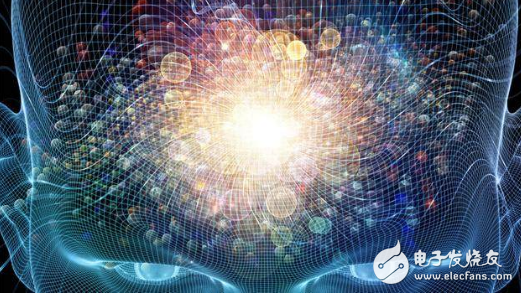
First, artificial intelligence greatly increases labor productivity
Research shows that artificial intelligence can stimulate economic growth potential in three ways.
1. Artificial intelligence helps companies to use their practices more effectively by transforming their work methods, thereby greatly increasing existing labor productivity.
2, artificial intelligence can even replace most of the labor, becoming a new production factor.
3, the popularity of artificial intelligence can drive the upgrading of industrial structure and promote innovation in more relevant industries. Open up a new source of economic development in the production, service, pharmaceutical and other industries.
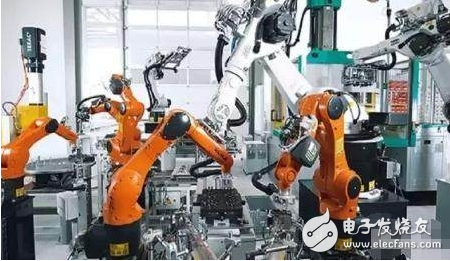
According to PwC’s June 27th issue, “Catch the Opportunity--2017 Summer Davos Forum Reportâ€, the contribution of artificial intelligence to the world economy will reach US$15.7 trillion by 2030, and China and North America are expected to become artificial. The biggest beneficiary of intelligence, the total benefit is equivalent to 10.7 trillion US dollars. By 2035, artificial intelligence is expected to boost China's labor productivity by 27%, and artificial intelligence will boost China's economic growth by 2035, from 6.3% to 7.9%.
Second, "the fourth industrial revolution"
Since the birth of artificial intelligence, it has also begun to integrate deeply with various industries and has become a new fulcrum for the transformation and upgrading of economic structure. At present, artificial intelligence has been rapidly applied in various fields such as GPU, face recognition and driverless driving. In the manufacturing sector, there will be artificial intelligence participation in R&D and design, supply chain transportation, driving technology and transportation solutions for the automotive industry in the future.
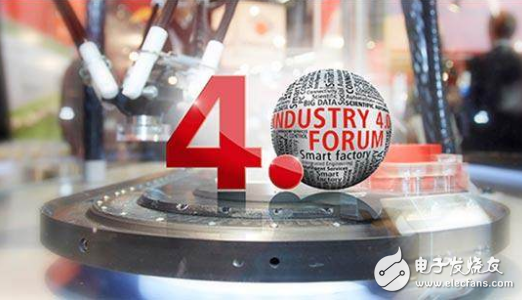
Statistics show that driverless cars have a higher safety factor than conventional manual driving, drive longer, and can reduce traffic accidents by 80%. The service industry is also widely used to benefit from the development of artificial intelligence technology. I believe that in the future, artificial intelligence technology will be widely used in the construction of smart cities, and greatly improve the efficiency of government governance. The healthcare industry is another major service industry that benefits from artificial intelligence. According to World Bank data, global healthcare spending accounts for 10% of the world's GDP, and at least 10% (about $100 billion) is used for medical diagnosis such as cancer detection and X-ray examination. Even through the robotic arm to do some difficult surgery, such as the heart surgery of Zhongshan Hospital in Shanghai, there is a robotic arm called "Da Vinci" to perform surgery for the patient. Compared with manpower, artificial intelligence technology is more precise and safe, and the success rate is higher! I believe that in the near future, artificial intelligence technology will help improve the diagnostic speed, accuracy and treatment accuracy of primary hospitals.
Third, artificial intelligence impacts the labor market
While the society enjoys the improvement of the quality of life brought about by artificial intelligence technology, the market has begun to question the voice of artificial intelligence.
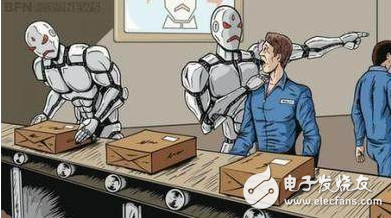
At present, the most worrying about artificial intelligence in society is that the application of artificial intelligence will impact the labor market, leading to an increase in unemployment rate and a decline in wages, which will eventually lead to inflation or deflation. In fact, such views are not a good or bad basis. The World Economic Forum (WEF) published a report entitled "The Future of Career", predicting that artificial intelligence will change the business model labor market in the next five years, resulting in a net loss of more than 500 in 15 major developed and new economies. Ten thousand jobs. Indeed, there are many blue-collar and white-collar jobs in the future. For example, factory workers, drivers, customer service representatives, and even bank staff may face the dilemma of unemployment. Artificial intelligence has caused an impact on the labor market to a certain extent, and inevitably brings risks to other related industries. Another result of technological advances is low inflation. It can be analyzed in this way that the rise of Internet technologies such as artificial intelligence effectively compresses multiple links in the supply chain, reducing the cost of the enterprise, thereby reducing the price of the commodity and reducing the cost of the consumer.
For example, using the statistics of the US Bureau of Statistics, the decision of the unlimited traffic plan provided by the communication service provider Verizon to determine the limited traffic package has lowered the US core inflation rate by 0.2 percentage points in June. Judging in turn, artificial intelligence technology seems to have a more significant weakening effect on inflation.
Fourth, face the challenges brought about by technological changes
"Technology is a double-edged sword" is not a strange proposition. It is undeniable that the development of artificial intelligence technology will indeed bring about problems such as increased unemployment rate and lower prices for human society. However, we should recognize artificial intelligence more seriously, face the problems brought by artificial intelligence, and cooperate with effective policies. Energize the amount to eliminate its negative impact on society. In the impact of artificial intelligence on the labor market, the following issues need to be considered.

First, with the disappearance of the demographic dividend and the aging of the society, the development of institutional and technological dividends represented by artificial intelligence is an inevitable trend.
Secondly, the Ministry of Science and Technology said on the State Department of Information on July 21st that "the impact of technological development on employment is not the result of today's artificial intelligence. The emergence of production machinery has led to the unemployment of a large number of handicraft workers since World War II. But in the long run Seen, the employment opportunities brought by technology far exceed the unemployment rate. In the future, some new professional jobs will emerge, such as artificial intelligence developers, maintenance and repairers are currently mechanically irreplaceable.
Finally, the government will pay more attention to the planning and coordination of relevant policies for artificial intelligence technology. On the one hand, the government will increase the retraining and education of the labor force so that it can engage in the professional development of artificial intelligence, and the future labor force will be more suitable for the needs of intelligent society and intelligent economic development. On the other hand, the birth of artificial intelligence will concentrate a large amount of wealth in the hands of a few people, which will intensify the polarization of social wealth.
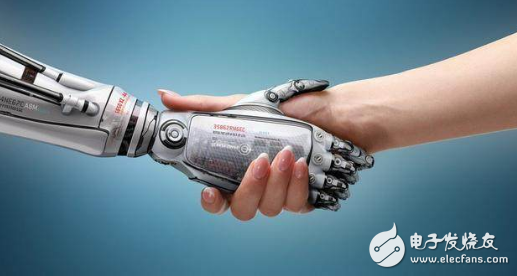
All in all, the global low inflation dilemma in recent years has been caused by a combination of falling commodity prices, insufficient demand due to an aging population, and the slow idleness of labor and slow wage growth that are masked by the rise of a part-time job in Europe and the United States. The impact of artificial intelligence on inflation ultimately depends on my per capita disposable income and government redistribution policies. Therefore, the advancement of artificial intelligence technology is not the only inevitable factor leading to low inflation. On the contrary, technological progress will help to promote the decline of commodity costs and bring more affordable products to consumers. In promoting consumption upgrades, it will also boost the consumption level of the whole society. Let us prepare accordingly, for the future layout, and welcome this inevitable change with a positive attitude!
Immersion Cooling is a technique used to cool components of IT equipment that consists of submerging the computer components in a thermally conductive and dielectric liquid. Through this practice, the servers are cooled and heat is transferred from the source to the liquid.
When we talk about Immersion Cooling, we also need to discuss the different types of Immersion Cooling, as well as the applications of Immersion cooling. The practice of Immersion Cooling has a multitude of benefits particularly as it allows datacenters to be managed in a greener and more sustainable manner. Environmental concerns has been a huge catalyst for the adoption of the technology in recent years.
deionized water
mineral oil
fluorocarbon-based fluids
synthetic
Immersion Cooling systems used to have a higher fluid cost than water cooling, but this is already changing.
A wide variety of liquids exist for this purpose, the most suitable being transformer oils and other electrical cooling oils. Non-purpose oils, including cooking, motor and silicone oils, have been successfully used for cooling personal computers
water cooling,oil cooling,immersion cooling box,liquid immersion cooling,apw12 power supply
Shenzhen YLHM Technology Co., Ltd. , https://www.hkcryptominer.com